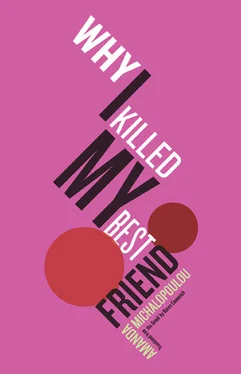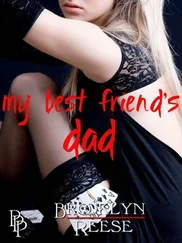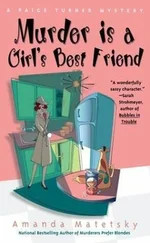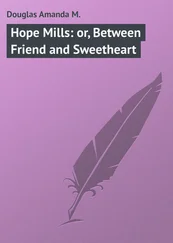They bleed, therefore they exist, as Camus would say.
The car in front of ours brakes abruptly. A toy dog on the dashboard bobs its head frantically as if agreeing with me, as if signing my proclamation on behalf of the inanimate world.
“Hold on tight,” Anna shouts.
We hold on.
We drive toward Syntagma, slipping between cars as if down a playground slide. The Grande Bretagne is to our right, Parliament to our left. As we look for a place to park, they tell me what happened: I fell down the stairs in the station at Syntagma, just before the demonstration hit its stride. Irini and Kayo carried me outside and laid me down on the grass.
“I don’t know what happened, I just couldn’t breathe. It felt like claustrophobia, or a panic attack.”
“Maybe you saw blood?” Anna asks, holding the restaurant door open for me to go inside. “Maria faints whenever she sees blood.”
“What happened next?” I say, ignoring her.
After that the demonstration erupted into a spontaneous party. Everyone loved the whistles, they were acting like little kids. The police beat up two teenagers they caught spray-painting something on the platform wall. They handcuffed a gypsy, who spat at them. They confiscated as many whistles as they could. They carried one half-crazed old woman to a police van, with her shouting the whole time, “You call yourselves men?”
“The question is, what’s the long-term effect of all that?” Anna asks.
“The conviction that we’re strong. That’s not enough for you?” Kosmas says.
“And the conviction that we can participate in social life without being controlled by bureaucrats or career politicians,” Irini adds.
“Sure, fine, they let you blow off some steam for an afternoon,” Anna says. “Look over there, though.” A gypsy kid has come into the restaurant, and the waiter runs over to shoo him out. “Just look at how one outcast treats another. We cut off our nose to spite our face.”
“Why would you call the waiter an outcast?” Fiona asks.
“The kid isn’t allowed to join the meal, and the waiter isn’t, either. They’re both here to serve us,” Anna says. “Over here, kid!”
The gypsy kid dodges the waiter and comes over to our table. He’s carrying a bunch of carnations whose stems are mere stubs wrapped in aluminum foil. Probably stolen from cemetery wreaths.
“Do you want a carnation?” the boy asks.
“What do you want?” Anna says.
“What’s that?” he says, motioning to her plate with his chin.
“Zucchini.”
“Can I have some?” the boy asks.
Anna motions for him to sit beside her and feeds him a bite from her fork. Her three young acolytes stare at her, mouths hanging open. Yes, the woman in the evening gown is a bit eccentric. One bite for her, one for the gypsy kid.
“I have to go,” the boy says, wiping his mouth with the back of his hand. He runs to the door, stops short, comes back and offers her a mutilated carnation. Anna, protectress of the scorned. A local Frida Kahlo. People at nearby tables are looking at us in annoyance.
“Look at that,” Anna says. “We destroyed the illusion of a safe, bourgeois life. And now they’ve lost their appetites.”
Is it really that easy to charm people? Irini and Kostas trust her already, they’re opening up and telling her about their lives, their families, their dreams. Fiona, who’s usually bored by our meetings, is gazing at her with eyes like saucers. Even Kayo is enjoying himself. He leans over and whispers to me: “She’s an eternal nineteen-year-old.” Nineteen? More like nine. Your character is more or less formed by the time you’re nine.
I’m beginning to understand the mechanism behind her charm: she does something insane, something out of keeping with her beauty, her image, the way she dresses. Then she uses that conspicuous act like a blanket: she wraps herself up in it, becomes that act. In the eyes of others, Anna is an allegory for generosity, courage, resourcefulness. She does things that occur to other people only fleetingly, enacts scenarios from the realm of instinct. She charms, she torments, she curses, she kills.
Yes, kills.
The face of the Albanian shapes itself for an instant in the bowl of soup before me. His harsh cheekbones flicker in and out of visibility between floating carrots. The broth has the metallic taste of blood. Cave. Metro. Prison. A place that’s underground, dark, deep. My temples grow numb, my tongue is dry.
“Anna, we have to talk about it.”
“About what?” Anna says.
“That thing. It’s suffocating me. I don’t know how you can live with it. I—”
She grabs me by the arm and pinches me, hard. “Let’s go outside, merde!” Her voice breaks into a sudden coughing fit. She practically spits her vowels.
“Take a deep breath!” she shrieks when we’re out in the pedestrian street outside the restaurant.
I can’t breathe at all.
She rubs my hands between hers. I feel a bit better. We smoke, pacing up and down. The lighted shop windows along the street look like the mouths of whales. All kinds of things seem to have washed up in there: torn clothing, hanging threads, tattered linings like the one from Aunt Amalia’s coat. It’s back in fashion. Meta-punk.
“It was an accident, get it into your head. An ac-ci-dent!” Anna says. “We’ve gone over this a thousand times.”
“You may have, with your shrink, maybe you’re over it now. But I just dug a hole in my head, dug a hole, do you understand? Inside me! And now it’s all seeping out. It’s coming back out, all of it! Like an overstuffed suitcase that just pops open on its own, you know?”
“So close the suitcase,” Anna snaps. “It’s done, it’s over.”
“I think we need to confess. We need to go to prison.”
“Have you completely lost your mind? You want to confess to the cops? Why don’t you go and light a candle at the church instead, like your mother?”
“I have to do something, I need to figure out how to make sense of it.”
“I could kill you, you know. I’ve fixed my life, and you come along and tell me—”
“What do I care? I never fixed my life. I’ve felt dead for a long time now.”
“Forget the drama, Maria. I can’t deal with any more drama.”
She hugs me in the only way she knows: tightly, asphyxiatingly, urgently. Her bones dig into mine.
“I know a good psychiatrist,” she says.
I know an even better psychiatrist: the National Library. I tell Saroglou I’ve come down with the flu and won’t be in for a few days. But the truth is I’ve got another school to go to: the school of silence — silence, not hysterical aphonia.
I need peace and quiet, high ceilings and a sense of purpose. I sit at one of the tables devouring whatever I can find about caves, prisons, even the architecture of metro stations. Anything having to do with underground life, darkness, or the attempt to escape into the light makes my pulse race, though it also holds a certain attraction. I read about Plato’s cave, about the prisoners who have spent their entire lives chained to a wall, facing another wall, trapped and immobilized in the darkness, unable to see even their fellow prisoners. The only light comes from a fire burning behind them, lit by their jailers. On the blank wall before them they see shadows cast by objects passing before the fire. The prisoners have no knowledge of what light even is.
My tongue goes dry again, my palms start to sweat. I grab my bag and rush outside, run down the marble stairs of the library two at a time, relieved to be out in the daylight. On my way home I wonder how real the things are that the prisoners see. According to Plato, the prisoners’ inability to orient themselves, to understand where they are, is a bondage far worse than their chains.
Читать дальше












